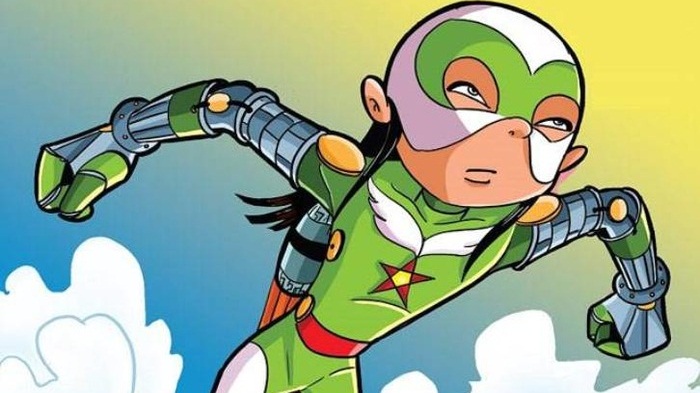
After the success of Aisha and Maya from SuperWeirdos and PsyMage, Amar Chitra Katha (ACK) rolled out its third superheroine last year in the shape of Mapui Kawlim, a 13-year old girl from Mizoram who pulls off some funky gadgets by her scientist father to fight crimes under the name Wingstar.
Whilst the comic was an instant hit, little is known about the pains taken to bring it all about. How was the character conceived and designed; what’s the secret behind the making and so on and so forth.
But Vineet Nair, the chief architect of the character, explains the theoretical underpinnings that went into its development, including the costume and its appearance. He says, “The costume should be flexible and light-weight. She’s learnt martial arts. Hence, the costume should be such, it bodes well with the action moves. The same goes for the antagonist.”
Tashi Kawlim, her father, is a scientist working for the Space Development Arm of the government and develops robotic arms, rocket thrusters and iron fists. A peach of a person with friendly attributes, the Kawlim sr. is thought of as an obese and hence the round appearance.

“Shapes matter a lot in character designs. The story is set in Northeast, so the peculiarities should be incorporated accurately such as the head-shape and jaw-line of a person, the facial appearance, the Northeastern architecture etc. Also, there are a lot of bamboo trees there. Hence one can find them sketched in the comics as well, just to give it a realistic touch,” said Nair.
All the characteristics of a character are written-down before the character designing. He later gets in cahoots with the story-writer for further discussions before putting the pen to paper. Or rather, to the Wacom tablet.
Man Mountain is a henchman of Biak Solo and one of the negative characters of the series. As the name dictates, he says, the character has to be huge and burly in appearance and assistant director Sean D’Mello is at the credits for its creation.
Once complete, the sketches would go to the art director whilst also being examined by the editor-in-chief Rajani Thindiath for approval followed by colouring, if granted the same.
Colourist Akshay Khadilkar reveals the process while shading the characters – “For colouring, the traditional colour palette of Mizoram (since it is where the story is set) is taken into account. Colours like white, green are quite common; hence the colour of the character. The average time of character design colouring depends on variety of factors such as the shape and size of character, the fine details and approval time.”
“If thumbnails of characters drawn by pencil are approved by the art directors, we go ahead with the inking. Later, speech bubbles are added with all the letterings,” he further stated.

But how do you decide the colours? “We take references to get a hang of the things. For example, how the tonality of an Indian character would be; for a horror story, the colour schemes would be dark; flashback scenes would have a shadowy colour and so on. We also have the colour palettes that are used according to the requirements.”
Another important manoeuvre is keeping the colour shades of a character across different speech bubbles consistent. And whilst that’s a tricky job, Khadilkar believes experience can help you pull it off without any glitches.
He adds, “In order to make Wingstar more appealing to the kids, brighter shades of colours were used. Bigger the character, finer is the detailing.”
Even if a picture does look attractive in its digital form, the print version of the same appears a tad less alluring, losing its original gloss. The ACK designer explains how it’s dealt with when he says, “The print copies tone down the attractiveness of the graphics a bit even though digitally its looks splendid. To avoid the dullness, we sometimes make the background a bit brighter.”
